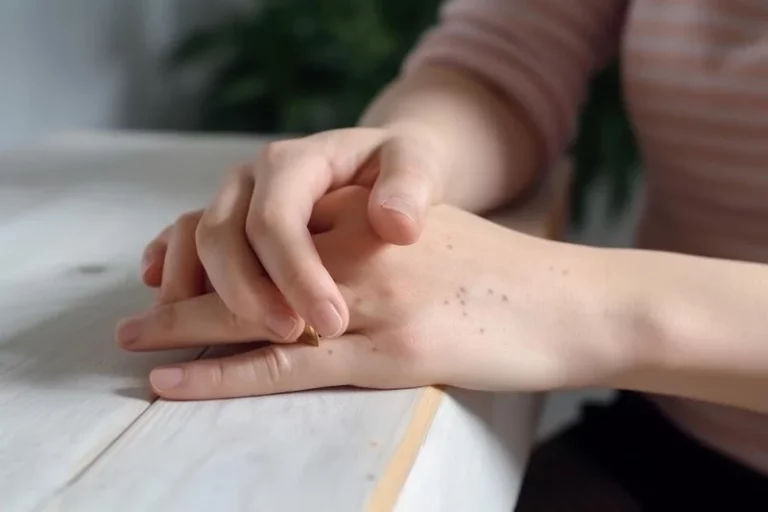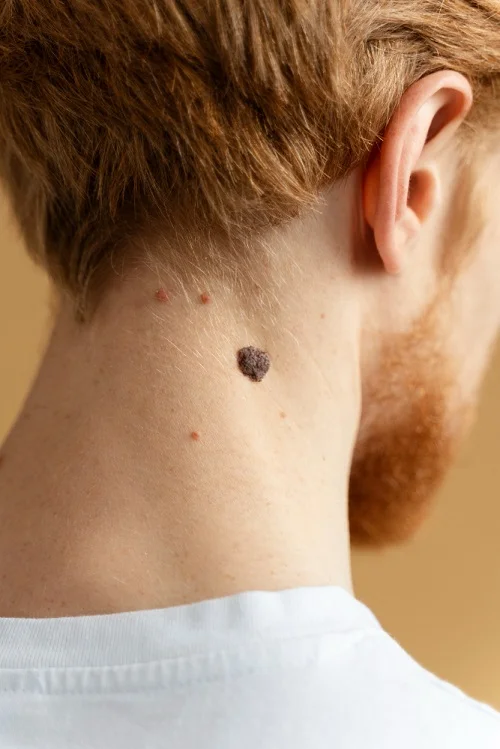How To Treat Depression Using Cryotherapy In 2023
Feeling down? Searching for a natural way to lift your spirits? Look no further than the invigorating world of ice baths. Plunging into icy waters might sound like an extreme remedy, but it has been utilized for centuries as a potential antidote to various health issues. Beyond the initial shock, ice baths stimulate our body’s physiological response, which could have remarkable effects on our mental well-being. Could this chilly practice be the key to managing depression and enhancing overall mood?
Ice baths have gained attention in recent years due to their potential benefits in alleviating symptoms of depression. By subjecting ourselves to cold exposure, we trigger a cascade of reactions within our bodies that may positively impact our emotional state. While research is still ongoing, preliminary findings suggest that ice baths hold promise as a complementary therapy for individuals struggling with depressive disorders.
So, let’s dive into the frigid waters and explore how ice baths could potentially offer relief from depression while boosting our overall mental wellness. Get ready to embrace the chill and discover a refreshing approach to improving your mood!
Effectiveness of Cold Showers for Treating Depression
Cold showers have gained attention as a potential method for reducing depressive symptoms, thanks to their invigorating effect on the body. The shock of cold water cascading over the skin can activate the sympathetic nervous system, leading to increased alertness and an uplifted mood.
Research suggests that cold showers may offer benefits beyond just waking us up in the morning. They have been found to enhance blood circulation, which can be particularly beneficial for individuals with depression. Improved blood flow helps deliver essential nutrients and oxygen to the brain, promoting its overall health and functioning.
One fascinating aspect of cold showers is their ability to stimulate the release of endorphins. These natural chemicals act as mood boosters and pain relievers, contributing to a sense of well-being. When we expose our bodies to cold water, it triggers a response that prompts endorphin production, potentially alleviating depressive symptoms.
Incorporating cold showers into daily routines could serve as an accessible and cost-effective adjunct therapy for depression. Unlike many traditional treatment options, such as medication or therapy sessions, taking a cold shower requires no financial investment or appointments. It is something that can easily be integrated into one’s daily routine without disrupting other activities or responsibilities.
To fully reap the potential benefits of cold showers for depression relief, it is important to embrace them as more than just a quick rinse-off under chilly water. By intentionally immersing oneself in colder temperatures for a longer duration – such as taking an ice bath – individuals may experience even greater effects on their mental well-being.
While there are no set guidelines regarding how long one should spend in an ice bath or under a cold shower, gradually increasing exposure time over several sessions can help acclimate the body to lower temperatures without overwhelming it. Starting with shorter durations and gradually extending them allows individuals to gauge their tolerance level while still reaping potential benefits.
It is worth noting that cold showers alone are not a substitute for professional treatment for depression. They should be seen as complementary to established therapies and lifestyle changes recommended by healthcare professionals. However, they can serve as an additional tool in one’s mental health toolbox, potentially enhancing overall well-being.
The Impact of Ice Baths on Anxiety Reduction
Ice baths have gained popularity in recent years as a potential method for reducing anxiety levels. While the idea of immersing oneself in freezing cold water may seem counterintuitive, there is evidence to suggest that ice baths can trigger the body’s relaxation response and promote a sense of calmness and tranquility.
Exposure to cold temperatures during an ice bath session activates the parasympathetic nervous system, which is responsible for regulating rest and digestion. This activation leads to a decrease in heart rate, blood pressure, and overall tension in the body. As a result, individuals may experience feelings of relaxation and reduced anxiety.
One possible mechanism behind the anxiety-reducing effects of ice baths is the release of norepinephrine. Norepinephrine is a neurotransmitter that plays a role in stress regulation. During an ice bath, the body releases norepinephrine as a response to the extreme cold temperature. This release may help regulate stress hormones such as cortisol and adrenaline, leading to a reduction in anxiety symptoms.
It is important to note that while ice baths can potentially alleviate anxiety symptoms, they should not be considered as standalone treatments for clinical anxiety disorders. Instead, they can be used as complementary approaches alongside traditional therapies prescribed by healthcare professionals.
Incorporating ice baths into an overall treatment plan for anxiety can provide additional benefits beyond just symptom management. By promoting emotional balance and relaxation, these cold-water immersions offer individuals an opportunity to engage with their bodies and focus on self-care.
Moreover, ice baths can serve as powerful tools for grounding oneself during moments of heightened stress or panic. The shock of cold water against the skin acts as a sensory distraction that helps redirect attention away from anxious thoughts or triggers. This redirection allows individuals to regain control over their emotions and find solace in the present moment.
To make the most out of an ice bath session, it is essential to create a soothing environment. Some individuals may choose to light candles or play calming music in the background. Others may find comfort in practicing deep breathing exercises or meditation while submerged in the cold water.
Cold Therapy’s Benefits in Managing Depression
Cold therapy, specifically techniques like ice baths, offers a promising non-pharmaceutical approach to managing depressive symptoms. This alternative treatment has gained attention for its potential to alleviate mood disorders and improve overall mental well-being. By stimulating the release of neurotransmitters associated with mood regulation, cold therapy may hold the key to unlocking new possibilities in depression management.
The intense cold experienced during an ice bath triggers various physiological responses within the body. One of the most significant effects is the release of neurotransmitters such as dopamine and serotonin. These chemicals play crucial roles in regulating mood and are often targeted by pharmaceutical interventions for depression. The natural stimulation of these neurotransmitters through cold therapy presents an intriguing avenue for individuals seeking non-medication-based solutions.
In addition to directly affecting neurotransmitter levels, regular exposure to cold temperatures may also enhance resilience against stressors that contribute to depression. Cold therapy acts as a stressor itself, training the body to adapt and respond more effectively when faced with other challenging situations. This increased resilience can potentially mitigate the impact of stress on mental health and reduce the likelihood of succumbing to depressive episodes.
While research into this area is still ongoing, experts are investigating how incorporating cold therapy into treatment plans could improve outcomes for individuals with depression. The Substance Abuse and Mental Health Services Administration (SAMHSA) recognizes that there is a need for innovative approaches beyond traditional medication-based treatments. Exploring alternative therapies like cold therapy aligns with SAMHSA’s mission to provide evidence-based practices that promote recovery and wellness.
It is important to note that cold therapy should not be seen as a standalone solution but rather as a complementary approach alongside other established treatments for depression. Seeking professional guidance from healthcare providers who specialize in treating mood disorders is essential when considering any form of alternative therapy.
Understanding the Mental Health Benefits of Cold Plunges
Cold plunging, known as cold immersion therapy or ice baths, offers a unique and holistic approach to promoting mental well-being. By combining the benefits of cold exposure with hydrotherapy, individuals can experience various mental health benefits that contribute to their overall happiness and resilience.
The contrast between hot and cold water in a cold plunge has been found to promote relaxation and reduce inflammation throughout the body. This contrast therapy involves immersing oneself in cold water for a short period, followed by a warm shower or bath. The sudden change in temperature stimulates blood flow, which can have a positive impact on mood regulation.
One of the most notable mental health benefits of cold plunges is their potential to enhance mood. The shock of the cold water triggers the release of endorphins, often referred to as “feel-good” hormones. These endorphins create a natural high that can help combat symptoms of depression and anxiety. The invigorating sensation experienced during and after a cold plunge can provide an immediate mood boost.
Improved sleep quality is another advantage associated with regular cold plunges. Exposure to cold water has been shown to regulate sleep patterns by increasing levels of melatonin, the hormone responsible for promoting sleepiness. By incorporating this practice into your routine, you may find it easier to fall asleep faster and enjoy more restful nights.
Furthermore, engaging in regular cold plunges can increase energy levels and enhance overall mental resilience. The shock from the icy water stimulates the release of adrenaline, leading to heightened alertness and increased energy expenditure. Over time, this exposure builds mental resilience by training your mind and body to adapt to stressors more effectively.
While not intended as a sole treatment for depression or other mental health conditions, exploring the potential benefits of cold plunges as a complementary therapy is worth considering for individuals seeking additional support. Cold immersion therapy should be approached as an adjunct to traditional treatments and therapies, providing a unique way to enhance overall mental well-being.
Exploring the Potential of Cold Therapy for Anxiety Relief
Cold therapy techniques, such as ice baths, have garnered attention for their potential in reducing anxiety symptoms through physiological responses. By exposing the body to cold temperatures, these therapies activate the natural stress response mechanisms, which may help alleviate anxiety levels.
One of the ways cold therapy works is by stimulating cold receptors in our skin and underlying tissues. When exposed to cold temperatures, these receptors send signals to the brain, triggering various reactions within the body. This activation can lead to an increase in noradrenaline release, a stress hormone that plays a role in regulating mood and anxiety.
Research suggests that exposure to cold temperatures can modulate heart rate variability (HRV), a measure of how well our autonomic nervous system adapts to changes in our environment. Individuals with anxiety disorders often exhibit reduced HRV and increased hyperarousal. Cold therapy may help regulate HRV and decrease this hyperarousal associated with anxiety disorders.
While more studies are needed to fully understand the effects of cold therapy on anxiety relief, preliminary research has shown promising results. For example, a study published in the Journal of Clinical Psychopharmacology found that participants who underwent whole-body cryotherapy experienced a significant reduction in symptoms related to generalized anxiety disorder compared to those who received a placebo treatment.
Incorporating cold therapy into existing anxiety management strategies could provide additional relief for individuals struggling with anxiety. However, it’s important to note that while some researchers advocate for its use as an adjunct treatment option, concerns remain about relying solely on cold therapy as a primary intervention for severe cases of anxiety or as a replacement for prescribed medication.
It’s crucial for individuals considering cryotherapy for anxiety relief to consult with healthcare professionals before incorporating it into their treatment plan. Healthcare providers can assess individual needs and determine whether it is suitable alongside other interventions.
Cold Water Immersion as a Treatment for Depression and Headaches
Cold water immersion, also known as cold water therapy or cold showers, has gained attention as a potential treatment option for both depression and headaches. This alternative approach harnesses the analgesic effects of cold water to alleviate headache symptoms while also improving mood. Research suggests that this therapy stimulates the release of endorphins, which can have a positive impact on depressive symptoms. Let’s delve into the therapeutic potential of cold water immersion in managing coexisting depression and headache conditions.
Alleviating Headache Symptoms
Headaches can be debilitating, affecting daily life and overall well-being. Cold water immersion offers a promising avenue for relief from these painful episodes. When exposed to cold water, blood vessels constrict, reducing inflammation and potentially relieving headache symptoms. The numbing effect of the cold temperature may provide immediate relief from pain.
Improving Mood through Endorphin Release
Depression is characterized by persistent feelings of sadness, lack of interest in activities, and low energy levels. Cold water immersion may offer an unconventional yet effective method to alleviate depressive symptoms. Studies have shown that exposure to cold water stimulates the release of endorphins – neurotransmitters responsible for regulating mood and reducing pain perception.
Endorphins act as natural painkillers and create a sense of euphoria or wellbeing. By triggering their release through cold water therapy, individuals with depression may experience temporary relief from their emotional distress. The surge in endorphins can help combat feelings of hopelessness and improve overall mood.
Exploring Therapeutic Potential
Considering both depression and headaches often coexist within individuals, exploring the therapeutic potential of cold water immersion becomes even more significant. This approach offers a holistic solution targeting multiple aspects of well-being simultaneously.
By incorporating regular sessions of cold water immersion into one’s routine, it is possible to address both depressive symptoms and recurring headaches simultaneously. The benefits extend beyond mere symptom relief, as the therapy also promotes a sense of invigoration and rejuvenation.
Conclusion
In conclusion, ice baths have shown promise in improving mental well-being by reducing symptoms of depression and anxiety. Cold showers and cold water immersion are effective in treating depression, with individuals reporting a decrease in depressive symptoms after regular use. Furthermore, ice baths have also been shown to have a positive impact on anxiety reduction, providing individuals with a natural and accessible method for managing their anxiety levels.
Cold therapy, such as ice baths, offers various benefits for individuals struggling with depression. By exposing the body to cold temperatures, this therapy can help stimulate the release of endorphins and increase blood circulation, leading to improved mood and overall mental health. Cold plunges offer potential relief from anxiety by activating the body’s natural relaxation response.
Understanding the mental health benefits of cold therapy is crucial for those seeking alternative methods to manage their depression and anxiety. Incorporating ice baths into one’s self-care routine may provide a valuable tool for enhancing emotional well-being. Exploring the potential of cold therapy can open up new avenues for anxiety relief and contribute positively to an individual’s mental state.
While further research is needed to fully understand the mechanisms behind how ice baths affect mental health, many individuals have reported positive experiences with cold water immersion as a treatment for both depression and headaches. This anecdotal evidence highlights its potential as an adjunctive therapy complementing traditional treatment approaches.
In summary, ice bath therapy shows promise in promoting mental well-being by alleviating symptoms of depression and anxiety. By harnessing its power through regular use, individuals may experience improvements in their overall mood and emotional well-being. To explore this alternative method for managing your mental health, consider incorporating ice baths into your self-care routine.






